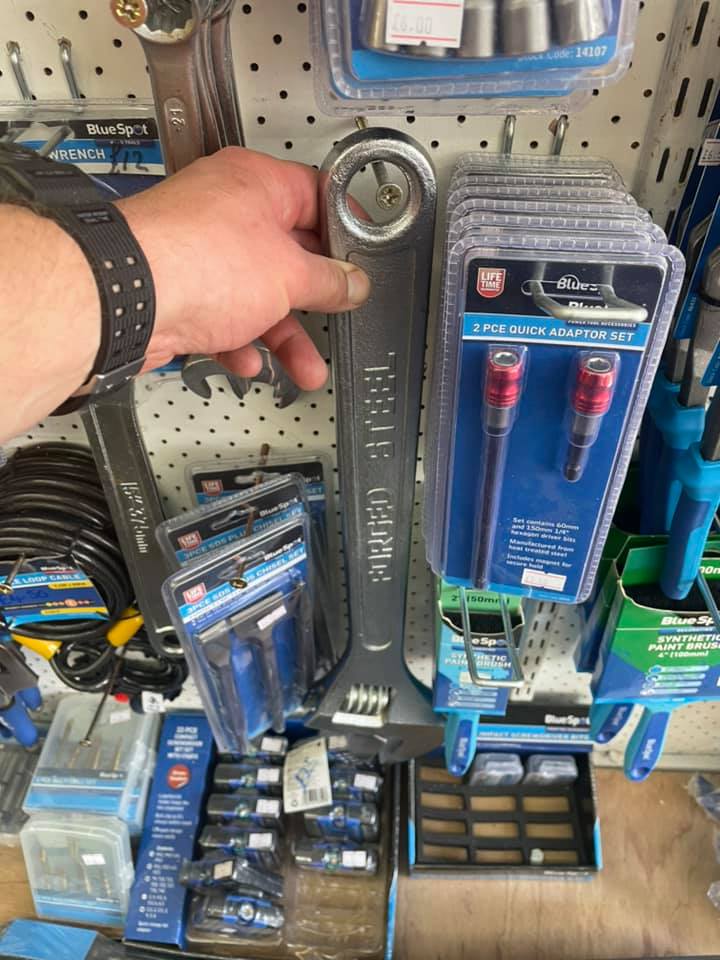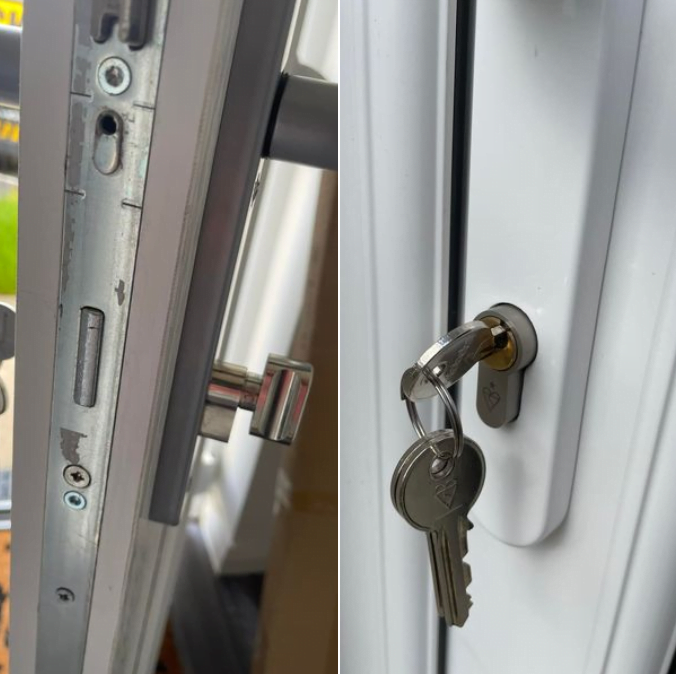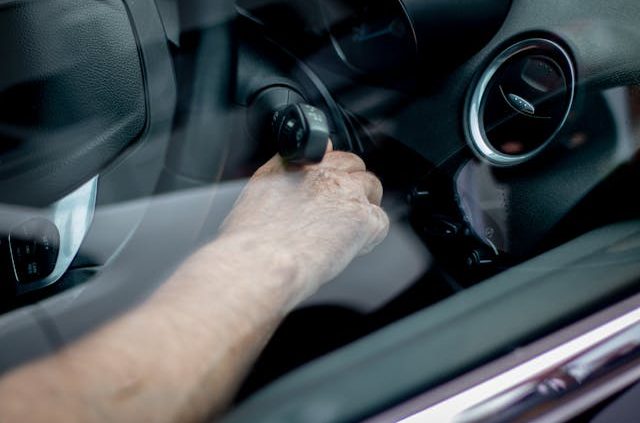Locksmith: The Ultimate Guide for 2024: Secure Solutions!
“Locksmith: The Ultimate Guide for 2024” is your definitive resource for all things lock-related. Discover professional insights into security solutions, key cutting, and lock maintenance.
Navigating the world of locks and security can be daunting, but with the right guidance, you can master the essentials of locksmithing. Whether you’re a homeowner seeking to upgrade your security, a business owner in need of robust locking systems, or simply interested in the craft of locksmithing, “Locksmith: The Ultimate Guide for 2024” is tailored to provide you with the latest industry trends, tools, and techniques.
This guide ensures you’re well-informed about the latest security technology, emergency lockout protocols, and preventative maintenance practices. Stay ahead of the curve in safeguarding your property and gain peace of mind with expert advice from seasoned professionals.
What Is A Locksmith?
Ever found yourself locked out of your home or car? Maybe you’ve needed a new set of keys or a lock repaired. That’s when a locksmith becomes your go-to hero. Our Locksmith: The Ultimate Guide for 2024 dives into the world of locksmiths. We explore who they are, what they do, and the various services they offer. Let’s unlock the mystery!
Definition Of A Locksmith
A locksmith is a skilled professional who works with locks and keys. They have the expertise to install, repair, and pick locks. They can also cut keys and offer services to enhance security. Locksmiths are like security wizards, ready to solve any lock-related puzzle you might face. They blend traditional skills with modern technology to secure your property. Here’s what they offer:
Emergency Unlocking: Quick help when you’re locked out.
Lock Repair: Fixing broken or worn-out locks.
Key Cutting: Creating new keys or duplicates.
Security Upgrades: Enhancing lock systems for better safety.
Locksmiths also have a knack for assessing security needs. They can recommend the best locks for your doors and windows.
Types Of Locksmith Services
The range of services a locksmith offers is vast. They cater to different needs, from residential to commercial. Here’s a brief overview:
|
Type of Service |
Description |
|---|---|
|
Residential Locksmithing |
Services for homes, including lock changes and key cutting. |
|
Commercial Locksmithing |
Security solutions for businesses, like master key systems. |
|
Automotive Locksmithing |
Car lock and key services, including transponder key programming. |
|
Emergency Services |
24/7 assistance for lockouts and urgent lock repairs. |
Locksmiths also provide specialized services like safe cracking and electronic access control systems. They can tailor solutions to fit your specific security needs. With their diverse skills, locksmiths are crucial in keeping your property safe.

Credit: https://prolocksni.co.uk/
How To Become A Locksmith
Embarking on a career as a locksmith in 2024 can be both exciting and rewarding. Locksmiths help people in their hour of need, ensuring their security and peace of mind. They work with locks and keys, offering solutions that keep homes and businesses safe. This guide will walk you through the steps to become a locksmith, focusing on the essential education and training, as well as the necessary certification and licensing.
Education And Training
To start your journey, a solid foundation in locksmithing education and training is crucial. Most locksmiths begin with a high school diploma or equivalent. After that, vocational training or an apprenticeship can provide hands-on experience. Some key steps include:
Locksmithing courses: Offered by community colleges or online schools, these courses cover basics to advanced techniques.
Apprenticeship: Working under an experienced locksmith gives you real-world skills and insights.
A typical locksmith training program might include:
|
Course |
Description |
Duration |
|---|---|---|
|
Key Duplication |
Learning the art of cutting and duplicating various key types. |
2 weeks |
|
Lock Installation |
Techniques for installing residential and commercial locks. |
1 month |
|
Lock Picking |
Mastering non-destructive entry methods. |
3 weeks |
With dedication, you can complete your education and training within a few months to two years.
Certification And Licensing
After training, obtaining certification and a license is the next step. These prove your expertise and trustworthiness to clients. Every country or state has different requirements, but they generally include:
Eligibility: A clean criminal background and a minimum age are often required.
Examination: Passing a test that covers locksmith skills and knowledge.
Insurance: Liability insurance to protect you and your clients in case of accidents.
Some well-known certifications are from the Associated Locksmiths of America (ALOA) and the Safe and Vault Technicians Association (SAVTA). These certifications are respected in the industry:
|
Certification |
Requirements |
Benefits |
|---|---|---|
|
Registered Locksmith (RL) |
Passing an exam on general locksmithing. |
Industry recognition and increased job opportunities. |
|
Certified Master Safe Tech (CMST) |
Advanced knowledge in safe and vault technology. |
Specialization in a high-demand niche. |
Certification and licensing can take several weeks to months, depending on the speed of processing and exam schedules.
Tools Of The Trade
In the world of locksmithing, mastery comes with understanding and utilizing the right tools. These instruments are vital for various tasks, from crafting new keys to unlocking doors without the original key. Let’s dive into the essential gear that defines the locksmith’s craft in “Locksmith: The Ultimate Guide for 2024” and explore the ‘Tools of the Trade’ that keep the profession ticking.
Key Cutting Machines
A locksmith’s ability to create new keys is fundamental. Key cutting machines are at the core of this process. These powerful tools come in various types, each suited for different key styles and precision cuts:
Manual key cutters require the locksmith to trace the original key’s shape to replicate it.
Semi-automatic machines ease the process with more automation, boosting efficiency and accuracy.
Fully automatic models offer the most advanced features, allowing for high-volume key cutting with minimal effort.
Key cutting machines also vary based on the types of keys they can produce:
|
Type of Key |
Machine Used |
|---|---|
|
Standard house keys |
Basic key cutting machines |
|
Car keys with transponders |
Laser key cutting machines |
|
High-security keys |
Specialized duplicators |
Lock Picking Tools
When keys are lost or unavailable, locksmiths turn to their lock picking tools. These tools grant access without causing damage to the lock. The most common tools include:
Tension wrenches apply pressure to turn the lock as the correct key would.
Pick guns move the pins quickly, allowing the lock to be opened.
Rakes slide across the pins to set them in the unlocked position.
Hook picks manipulate individual pins to the correct height.
Skilled locksmiths often have a set of picks for various lock types, including:
|
Lock Type |
Pick Used |
|---|---|
|
Pin tumbler locks |
Standard hook picks and rakes |
|
Wafer locks |
Wafer picks |
|
Disc detainer locks |
Dedicated disc detainer picks |
Drills And Extractors
When locks fail or picking isn’t an option, drills and extractors provide a solution. Drills make precise holes to dismantle locks without the key. Extractors remove broken key pieces from lock cylinders. Locksmiths use them with care to avoid damaging the lock’s integrity. Their toolkit includes:
Drill bits of various sizes for different lock types.
Screw extractors to remove screws with stripped heads.
Key extractors to retrieve snapped key fragments.
These tools require a steady hand and expertise to ensure successful operation:
|
Tool |
Use Case |
|---|---|
|
Power drill |
Opening jammed locks |
|
Broken key extractor |
Removing key shards |
|
Screw extractor set |
Taking out stubborn screws |

Common Locksmith Services
Welcome to Locksmith: The Ultimate Guide for 2024. This guide provides key insights into common locksmith services. Locksmiths offer a range of solutions for lock-related issues. From urgent lockout help to securing homes and businesses, these services are essential for safety and convenience.
Emergency Lockout Services
Emergency lockout services are a lifeline when keys are lost or forgotten. Locksmiths offer quick, reliable assistance to regain access to your property. They use specialized tools to open locks without damage. Here are key points about emergency lockout services:
Available 24/7 for urgent situations
Fast response times to minimize waiting
Skilled in opening various lock types without causing harm
See the table below for common emergency services:
|
Service |
Description |
|---|---|
|
Home Lockout |
Unlocking house doors |
|
Car Lockout |
Opening locked vehicles |
|
Safe Opening |
Accessing locked safes |
Residential Locksmith Services
Residential locksmith services ensure homes remain safe and secure. Locksmiths install, repair, and upgrade home locks. They also offer key duplication and lock rekeying. This helps maintain home security, especially after moving into a new place or losing keys. Below are common residential services:
Lock installation and repair
Rekeying and master key systems
Security upgrades like smart locks
Locksmiths also advise on the best security practices for your home. They assess your property’s needs and suggest suitable security measures.
Commercial Locksmith Services
Commercial locksmith services protect businesses from unauthorized access. Locksmiths install high-security locks, access control systems, and CCTV. They tailor services to each business’s unique needs. Here’s what they offer:
High-security lock installation
Master key systems for offices
Electronic access control setup
Locksmiths also perform regular maintenance to prevent lockouts and security breaches. They ensure businesses stay secure around the clock.
Tips For Choosing A Locksmith
Finding the right locksmith is crucial for the security of your home or business. With the “Locksmith: The Ultimate Guide for 2024”, you’ll learn how to pick the best professional. A good locksmith offers more than just skills; they bring reliability and peace of mind. Follow these tips to ensure you choose wisely.
Check For Licensing And Insurance
When you need a locksmith, checking their credentials is vital. A license proves they meet industry standards. Insurance covers any damage during repairs. Here’s what to look for:
Valid License: Confirm the locksmith has a current license. This shows they follow laws and regulations.
Insurance: Ensure they have liability insurance. This protects your property if something goes wrong.
Professional Certifications: Check for certifications from recognized associations. These include ALOA or MLA.
|
Credential |
Description |
Why It’s Important |
|---|---|---|
|
License |
State-issued credential |
Verifies legal operation |
|
Insurance |
Liability coverage |
Protects against damage |
|
Certifications |
Industry-recognized |
Ensures expertise |
Read Reviews And Ask For Referrals
Reviews and referrals are gold when choosing a locksmith. They reveal past customer experiences. Look for patterns in feedback. Positive reviews often mean reliable service. Here’s how to use them:
Online Reviews: Sites like Yelp or Google provide customer ratings. Look for high stars and read comments.
Social Media: Check the locksmith’s social pages for customer interactions.
Word of Mouth: Ask friends or family for their recommendations. Personal experiences are telling.
Review Analysis: Don’t just skim the ratings. Dive into the details. Look for comments on punctuality, professionalism, and pricing. These factors are telling of the locksmith’s quality.

Get A Written Estimate
A written estimate is your safeguard against hidden fees. It should detail all costs before work begins. Here’s what a good estimate includes:
Detailed Costs: It should list fees for labor, parts, and emergency services if applicable.
Expiry Date: The estimate should have a valid period. This ensures prices stay fixed during that time.
Signature: Both parties must sign the estimate. This makes it a binding document.
Always compare estimates from different locksmiths. This helps you get the best deal. Remember, the cheapest option isn’t always the best. Balance cost with quality of service.
Diy Locksmithing
Ever found yourself locked out of your home or car? Fear not! This ultimate guide for 2024 introduces you to the art of DIY locksmithing. This skill can save you time and money. Learn the basics of handling locks and when to seek professional help. Let’s dive into the world of DIY locksmithing and unlock the mystery behind the locks!
When To Call A Professional
Knowing when to call a professional locksmith is crucial. Here are scenarios where expert help is vital:
High-Security Lock Issues: Complex locks require specialized tools and knowledge.
Car Lock Problems: Modern cars have sophisticated systems that often need a professional.
Lock Installation: A pro ensures your locks are correctly installed for maximum security.
Consider this table to decide:
|
Issue |
DIY |
Professional |
|---|---|---|
|
Simple Lockout |
Maybe |
Recommended |
|
Key Duplication |
Yes |
For complex keys |
|
Lock Repair |
Minor issues |
For major malfunctions |
Remember, attempting complex jobs without the right skills can lead to damage. Always weigh the risk before starting a DIY project.
Basic Locksmithing Techniques
For simple lock issues, here are some basic techniques:
Picking a Lock: Use a tension wrench and pick to gently manipulate the pins.
Changing a Lock: Unscrew the old lock, replace it with a new one, and screw it back in place.
Rekeying a Lock: Requires a rekeying kit to change the lock pins, allowing a new key to operate it.
Tools you’ll need:
Tension wrench
Lock picks
Screwdriver
Rekeying kit
Start with these steps:
Identify Lock Type: Know your lock to choose the right tools.
Gather Tools: Have all necessary tools on hand.
Practice: Start with an uncomplicated lock to build your skills.
Remember, patience is key. Rushing may cause damage or fail to unlock. Practice builds confidence and skill over time.
Locksmithing In The Digital Age
As we step into 2024, the art of locksmithing evolves with cutting-edge technology. The traditional lock and key now share the stage with digital solutions. Locksmiths today must navigate an intricate web of electronic systems. They secure our homes and businesses in ways we never imagined a decade ago. This transition into the digital age brings both convenience and new challenges. Let’s unlock the world of modern locksmithing and its impact on security in our digital era.
Electronic Locks And Smart Home Security
Smart technology transforms how we protect our homes and possessions. The shift to electronic locks offers seamless access control with features like:
Keyless entry – say goodbye to lost keys!
Remote access – lock and unlock from anywhere.
User-specific codes – unique access for family and guests.
With smart home integration, these locks connect to other devices. They create a fortified, responsive security network. Imagine your doors locking automatically as your smart lights turn off. It’s convenience and safety in one. Here’s a quick comparison of traditional and electronic locking mechanisms:
|
Feature |
Traditional Locks |
Electronic Locks |
|---|---|---|
|
Access |
Physical key |
Code, smartphone, or biometrics |
|
Integration |
Minimal |
High with smart devices |
|
Convenience |
Manual operation |
Automated features |
Electronic locks and smart security systems require locksmiths to be tech-savvy. They must understand networking and IoT (Internet of Things) principles. This ensures homes stay safe in a smart world.
Cybersecurity Risks And Solutions
With innovation comes risk. Cybersecurity threats loom over the digital locking mechanisms. These include:
Hacking – unauthorized access to your locks.
Phishing – stealing access codes through deceit.
Software flaws – bugs that could leave your home vulnerable.
Locksmiths now must double as cybersecurity guards. They offer solutions to keep your digital locks secure. Some strategies include:
Regular software updates – to patch any security holes.
Strong authentication methods – like two-factor verification.
Encrypted communication – to protect data from prying eyes.
It’s not just about installing locks but ensuring they withstand digital threats. A locksmith’s toolkit now includes encryption keys and cybersecurity awareness. They ensure the digital age doesn’t compromise our safety. Trust a locksmith who is adept in both mechanical and digital realms for ultimate peace of mind.

The Future Of Locksmithing
The craft of locksmithing has stood the test of time, evolving with each leap in technology. As we delve into Locksmith: The Ultimate Guide for 2024, we turn our gaze to what lies ahead. The Future of Locksmithing promises a blend of tradition and innovation. This guide will explore how new tools and trends are shaping the trade. We will also examine the industry’s response to recent global events. Join us as we unlock the potential of modern locksmithing.
New Technologies And Trends
The locksmith industry is on the cusp of a new era, with groundbreaking technologies leading the way. Here’s what’s trending:
Smart Locks: These devices offer keyless entry and remote access via smartphones.
Biometric Systems: Fingerprint and facial recognition for personalized security.
Advanced Key Cutting Machines: Precision tools for high-security keys.
These innovations are changing how we think about security. For instance, smart locks allow users to track who enters their home in real-time. Biometric systems add a personal layer of security, ensuring only authorized individuals gain access. Meanwhile, advanced key cutting machines create keys that are nearly impossible to duplicate without specialized equipment. See the table below for a snapshot of these technologies:
|
Technology |
Features |
User Benefits |
|---|---|---|
|
Smart Locks |
Remote access, user logs, temporary keys |
Convenience and control |
|
Biometric Systems |
Fingerprint, facial recognition |
Enhanced security |
|
Advanced Key Cutters |
Precision cutting, unique key designs |
Security against unauthorized copying |
Locksmiths must adapt to stay ahead. They need to master these new tools to meet growing security demands.
Impact Of The Pandemic On The Industry
The global pandemic brought unexpected challenges to locksmithing. Here’s how the industry adapted:
Increased Demand for Touchless Entry: To reduce virus spread, many sought hands-free solutions.
Remote Services: Locksmiths began offering consultations and services via video calls.
Health and Safety Protocols: Enhanced measures to protect both locksmiths and clients.
Businesses and homes wanted to minimize contact. Touchless entry systems became popular. These systems range from motion sensors to voice-activated locks. Remote services helped locksmiths assist clients without being on-site. This change meant using video calls to diagnose issues and guide DIY repairs. Health and safety took center stage. Locksmiths wore masks, used hand sanitizer, and followed social distancing. Check out the list below to see the pandemic’s effects:
|
Change |
Description |
|---|---|
|
Touchless Entry Systems |
Reduced physical contact with surfaces |
|
Remote Services |
Assistance from a distance |
|
Safety Protocols |
Measures to prevent virus spread |
These adaptations helped keep the locksmith industry vital and responsive. Locksmiths proved they could overcome even the most unforeseen obstacles.

Frequently Asked Questions
How Much Does A Local Locksmith Cost?
Local locksmith services typically charge between $50 and $100 for standard lockouts. Prices may increase for after-hours services or specialized tasks like high-security lock installation, ranging from $150 to $250. Always confirm costs upfront as fees can vary based on the specific service needed.
How Much Does It Cost To Change A Door Lock?
The cost to change a door lock typically ranges from $75 to $200, including parts and labor. Prices may vary based on lock type and complexity.
What Are The Tips For Hiring A Locksmith?
For hiring a locksmith, ensure they’re licensed and insured. Check reviews for reliability and customer satisfaction. Get a clear quote upfront to avoid hidden fees. Confirm they offer the specific services you need. Lastly, verify their local address to ensure they’re legitimate and readily available for assistance.
What Do Locksmiths Do When You’re Locked Out?
Locksmiths assess the lock situation and use specialized tools to unlock the door without damage. They may pick the lock or, if necessary, drill it for entry.
Conclusion
Navigating the world of locksmith services doesn’t have to be daunting. Our comprehensive guide for 2024 equips you with all the necessary knowledge. From selecting the right locksmith to understanding the latest security technologies, you’re now well-prepared. Remember, choosing skilled professionals can significantly enhance your security.
Stay safe and informed!

